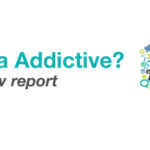
According to a recent survey by the Centre for Addiction and Mental Health, 86 per cent of students in Ontario visit social media sites daily and about 16 per cent spend five hours a day or more on social media. For some people, high rates of SNS use can lead […]Continue readingAddictions and Problematic Internet Use